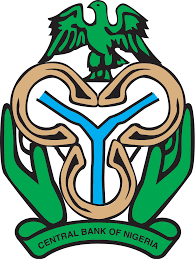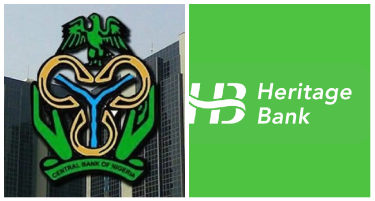The Central Bank of Nigeria (CBN) has announced the immediate revocation of the banking license of Heritage Bank Plc. This significant move was communicated through a statement issued by Hakama Ali, the Acting Director of Corporate Communications at the apex bank, on Monday. The decision aligns with the CBN’s mandate to ensure the stability and soundness of Nigeria’s financial system and was executed under the authority of Section 12 of the Banks and Other Financial Institutions Act (BOFIA) 2020.
According to the statement, Heritage Bank Plc had repeatedly violated Section 12 (1) of BOFIA, 2020. Despite the CBN’s efforts, the bank’s Board and Management failed to improve its financial performance, thereby posing a significant threat to the overall financial stability of the banking sector. The CBN highlighted that, over an extended period, it had engaged with Heritage Bank, implementing various supervisory measures aimed at curbing the bank’s financial decline. Unfortunately, these efforts proved insufficient, as the bank continued to deteriorate without any realistic prospect of recovery.
“This follows a period during which the CBN engaged with the bank and prescribed various supervisory steps intended to stem the decline. Regrettably, the bank has continued to suffer and has no reasonable prospects of recovery, thereby making the revocation of the license the next necessary step,” the statement read.

The CBN’s decision to revoke Heritage Bank’s license underscores its commitment to maintaining public confidence in the Nigerian banking system. The apex bank emphasized that such actions are crucial to ensuring the ongoing soundness and integrity of the financial sector. By taking this decisive step, the CBN aims to prevent further erosion of trust and to protect the interests of depositors and other stakeholders within the financial system.
To manage the aftermath of the license revocation, the CBN has appointed the Nigeria Deposit Insurance Corporation (NDIC) as the liquidator of Heritage Bank, in accordance with Section 12 (2) of BOFIA, 2020. The NDIC’s role will be to oversee the orderly liquidation of the bank’s assets and liabilities, ensuring that depositors and creditors are treated fairly in the process.
“We wish to assure the public that the Nigerian financial system remains on a solid footing. The action we are taking today reflects our continued commitment to take all necessary steps to ensure the safety and soundness of our financial system,” the CBN added. This reassurance aims to mitigate any potential concerns or panic that might arise among the banking public due to the revocation of Heritage Bank’s license.
Heritage Bank’s struggles have been ongoing, with financial analysts noting a series of challenges that have plagued the bank over the past few years. These include issues related to capital adequacy, asset quality, management inefficiencies, and liquidity constraints. Despite multiple interventions and regulatory support from the CBN, the bank was unable to stabilize its operations and regain financial health.
The revocation of Heritage Bank’s license is a reminder of the CBN’s proactive stance in regulating the banking sector. It highlights the apex bank’s readiness to take tough decisions to preserve the stability of the financial system, even if it means shutting down a failing institution. The CBN’s actions are rooted in its mandate to protect the financial system from systemic risks and to ensure that banks operate within the confines of regulatory standards.
In conclusion, the revocation of Heritage Bank Plc’s license by the CBN is a critical step aimed at safeguarding the stability of Nigeria’s financial system. The appointment of the NDIC as the liquidator ensures a structured process for dealing with the bank’s liabilities and assets. The CBN’s decisive action reaffirms its commitment to maintaining a resilient and trustworthy banking environment, crucial for the country’s economic well-being.




